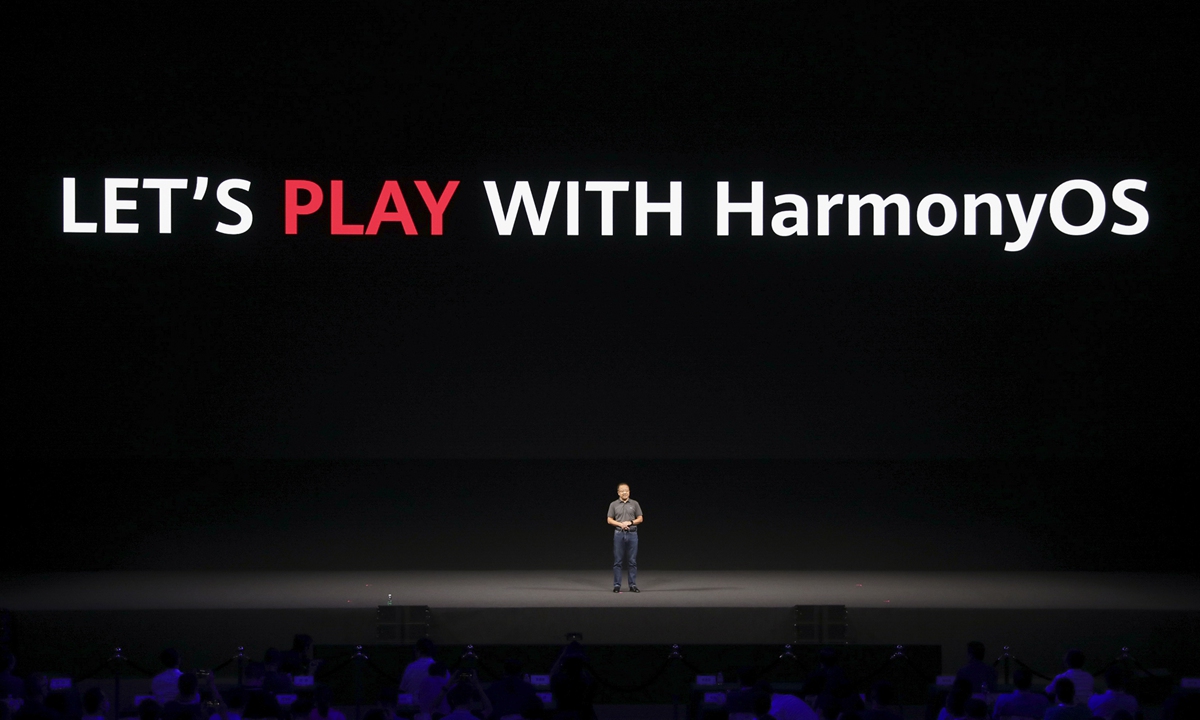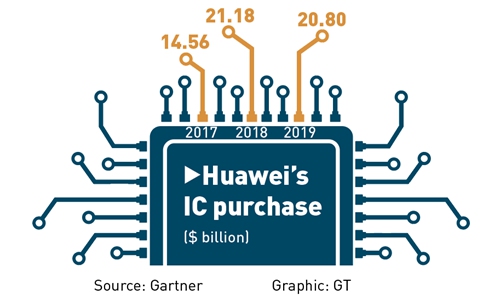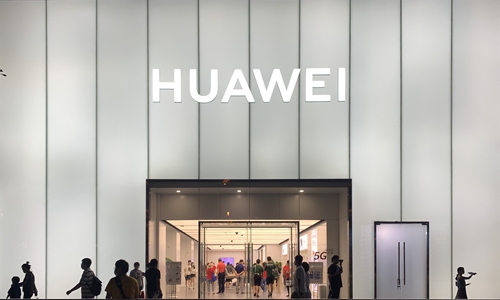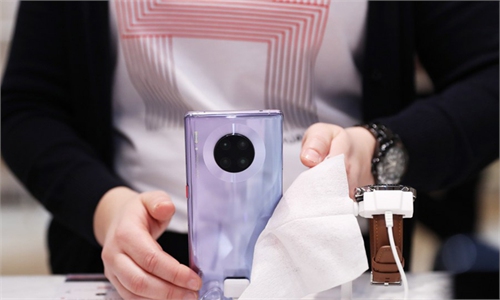China's entity list may prompt chip firms to find ways to resume Huawei supply
China’s Unreliable Entity List makes move more urgent: analysts

Photo: Courtesy of Huawei

Graphics: GT
US chipmaker Advanced Micro Devices Inc (AMD) and Intel have reportedly obtained a license from the US government to supply chips to Huawei, which may signal that Washington is easing restrictions on the Chinese tech giant and may issue licenses to more Huawei suppliers in the near future.
With the formulation of China's own Unreliable Entity List, more companies along the supply chain may lobby the US government to loosen the ban, and some may even team up to violate the US sanctions due to concerns about being put on the list, though officials have stressed that the list does not target any specific company, said industry analysts.
According to media reports, Forrest Norrod, senior vice president at AMD, confirmed at the Deutsche Bank Technology Conference on Saturday that the company has been granted a license to sell its products to some of the companies on the US Entity List.
Although Norrod did not identify Huawei by name, it is the only Chinese company that needs special authorization from the US to keep working, reports said.
Norrod added that the Huawei ban had not had a significant impact on AMD's business.
AMD rival Intel confirmed on late Monday regarding its application for license to supply Huawei. "We confirm that we have licenses," Intel said in a statement sent to the Global Times.
"AMD mainly supplies processors to Huawei's notebooks, especially AMD's Ryzen series central processing units. Thus, it may be a relief to Huawei's laptop business, but will do nothing for its dying mobile chip business," Jiang Junmu, an industry analyst and a close follower of Huawei, told the Global Times on Monday.
"Since the Trump administration has already realized it can't kill Huawei as a whole, it started to adopt another strategy: strangle its competitive mobile and chip businesses while letting go its less competitive laptop business," Ma Jihua, a veteran industry analyst who also follows Huawei, told the Global Times on Monday.
Analysts said that even if the ban is loosened, the US is unlikely to abandon restrictions on Huawei's mobile businesses.
The US has carried out "precision strikes" on Huawei's mobile phone business and blocked all its ways out, Jiang said.
If confirmed, AMD's announcement will still make it the first to publicly state that it obtained a license after the ban became effective on September 15.
Almost all the big names in the sector - Micron Technology, Qualcomm, Samsung, SK Hynix, Taiwan Semiconductor Manufacturing Co (TSMC), MediaTek, and Semiconductor Manufacturing International Corporation (SMIC)- have disclosed that they've applied to the US government for a license to continue supplying Huawei.
Chinese chip giant SMIC told the Global Times on Monday that it's still in the process of applying. TSMC did not respond to a request for comment by the Global Times as of press time on Monday.
Industry insiders said due to China's long-anticipated Unreliable Entity List, these chipmakers may become more eager to obtain a license. US firms will step up government lobbying while others, which are less likely to get licenses than their US counterparts, may team up and violate US sanctions to survive.
"China's entity list gives these US chip companies, as well as Japanese and South Korean companies, more worries. After all, the Chinese market is still very important to them," Ma said.
China on Saturday issued provisions for its Unreliable Entity List, laying the legal and regulatory groundwork for future countermeasures against foreign entities and individuals that harm Chinese interests.
A Ministry of Commerce official said on Sunday that the provisions are not aimed at any particular country or entity, in response to a question as to whether the release of the rules for the Unreliable Entity List is aimed at the US crackdown on Huawei, WeChat and TikTok. But analysts said those who block key supplies to Huawei are still likely to be put in the list, and thus they all have cause to worry about their fate in the country.
The official also said that there was no timetable or specific companies earmarked for the list.
"The launch of the provisions is just the first step. If the US continues its relentless crackdown on Chinese firms, there's still a possibility that China may list some as a warning to the rest," Ma said, without specifying a timetable.
In May, a source close to the Chinese government told the Global Times that China was ready to put US companies on its Unreliable Entity List, impose restrictions or probe US companies like Qualcomm, Cisco and Apple, and suspend airplane purchases from Boeing, in response to US threats to cut off foreign chip supplies to Huawei.




